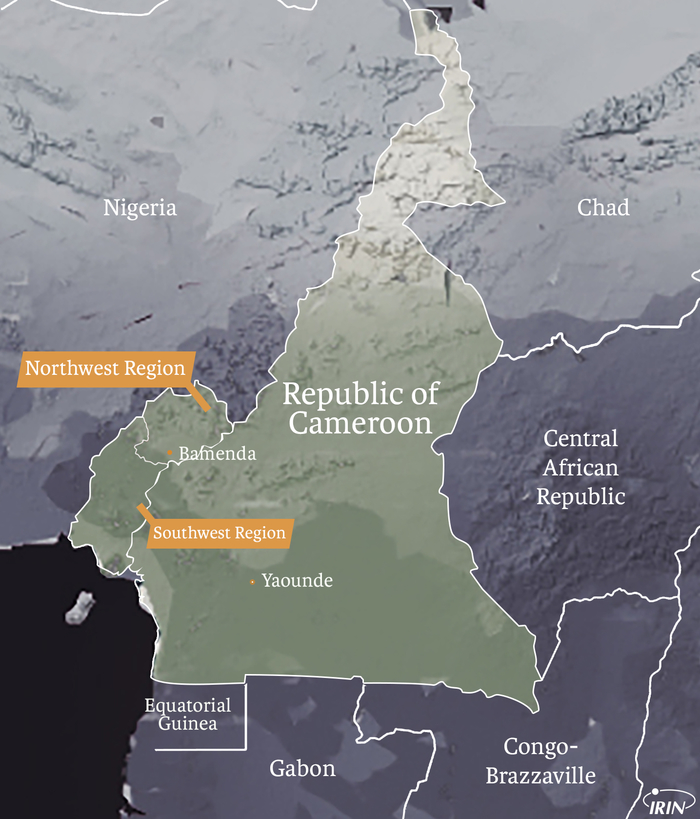
At least 22 people were killed in an attack in Cameroon’s Northwest region on Feb. 14, a UN official said—the latest incident in a wave of violence to shake the country’s restive English-speaking regions. The attack in Ntumbo village left 14 children dead—including nine under the age of five—according to the official. Opposition groups said the army was responsible, but the military blamed the explosion of fuel containers during a gunfight with separatists. Some 8,000 people have fled anglophone areas in recent weeks for Nigeria, following rising violence involving the army and separatist groups, who called for a boycott of parliamentary and municipal elections earlier this month.
According to Human Rights Watch, more than 100 people were kidnapped by separatists in the run-up to the elections—the first in seven years after two postponements—while government forces also committed violations including the killing of civilians. Fighting between Cameroon’s security forces and the anglophone rebels—who are demanding independence—has displaced around 740,000 people over the past three years and left more than 3,000 civilians dead.
From The New Humanitarian, Feb. 17.
Note: The conflict zone constitutes Cameroon’s Northwest and Southwest regions (see map), formerly administrated by the British as the Southern Cameroons, while the rest of contemporary Cameroon was under French rule. It is today claimed by the independence forces as Ambazonia.
Map: IRIN





Repression in Cameroon
One protester was killed in Cameroon’s first city Douala as police and gendarmes put down protests against the veteran President Paul Biya. Authorities banned demonstrations after the opposition Cameroon Renaissance Movement (MRC) encouraged people to take to the streets over the government’s decision to call regional elections. The MRC contends that elections cannot be conducted freely and fairly without reforming the electoral code and addressing the lack of security in the Anglophone regions. (Reuters, HRW)
Children massacred in Cameroon —again
At least eight children were killed and a dozen wounded when attackers stormed a school in Cameroon with guns and machetes. Arriving on motorbikes and in civilian clothes, the men struck the Mother Francisca International Bilingual Academy in the city of Kumba, in the country’s Southwest Region, at midday on Oct. 24. (Al Jazeera)
Who was behind Cameroon massacre?
The conflict in Cameroon’s anglophone region reached a new low last week when gunmen killed eight children and injured 12 others at a school in the southwestern town of Kumba. Officials blamed anglophone separatists, who are demanding independence from the majority French-speaking country, though no group has claimed responsibility. Separatists have enforced an education boycott on English-speaking regions since 2017 as part of their three-year struggle against the government. Talks between the warring sides have taken place in recent months in Yaoundé, the capital. But hardliners from both camps are hampering efforts, and violence has increased on the ground, where more than 700,000 people are now displaced. In the aftermath of the attack, Kumba residents held a vigil outside the school, as injured children battled for their lives in hospital. “I have not eaten, I cannot sleep because of this war, this nonsense crisis,” one woman told France 24. “Why should we kill our own children?” (TNH)